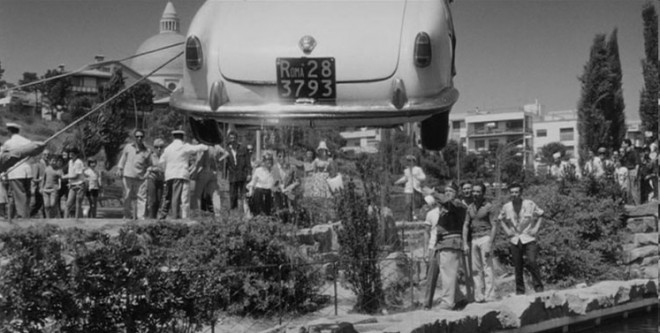The following is one of the entries from my 100 Greatest Films from the Soviet Union, Russia, Ukraine and Eastern Europe list, which I invite you to visit on this site if you haven’t already done so. — Dennis
Elegantly bourgeois, Yevgeni Bauer died months before Russia’s October Revolution. He had made more than twenty films, perhaps the loveliest of which is “Umirayushchii Lebed,” written by 20-year-old Zoya Barantsevich before she turned to silent film acting. Denouncing it as decadent, the Bolsheviks banned it.
It’s a shame whenever live or recorded music is appended to outstanding silent films, a practice that commercial pressure has been known to dictate. Silence is one of the most expressive elements in silent film and remains, even today, the grace of cinema. Musical attempts to heighten the emotional content of films strike me as barbaric and manipulative; as with other artistic elements, even in sound films the best music is analytical or distancing—not underlining, but aesthetically or thematically contributory.
Gizella (Vera Karalli, of the Bolshoi Ballet and Diaghilev’s Ballet Russes de Monte Carlo) is a mute ballerina—and the silence of Bauer’s silent film expresses this muteness, as does the muteness of two dream passages that, together, compose the spiritual and emotional vortex of Bauer’s film: one is a waking dream—ours—in which Gizella performs (exquisitely) Anna Pavlova’s signature dance, “The Dying Swan”; the other is Gizella’s own sleeping dream, in which her fate is revealed to her should she continue sitting, in costume, for Glinskiy, the artist who, obsessed with the image of death that she projects in performance, is painting her. With its premonitions of the end of a class and a silken style in Russian cinema, Bauer’s film begs to be read in terms of unfolding Russian history. (The earlier end of Gizella’s romance with Viktor, whose unfaithfulness she discovers, creates a foundation for the principal theme.) Hauntingly “The Dying Swan” mourns the loss that it anticipates.
And in silence! To paraphrase Shakespeare: Muteness is all.
B(U)Y THE BOOK
MY BOOK, A Short Chronology of World Cinema, IS CURRENTLY AVAILABLE FROM THE SANDS FILMS CINEMA CLUB IN LONDON. USING EITHER OF THE LINKS BELOW, ACCESS THE ADVERTISEMENT FOR THIS BOOK, FROM WHICH YOU CAN ORDER ONE OR MORE COPIES OF IT. THANKS.
